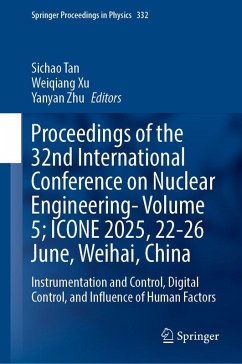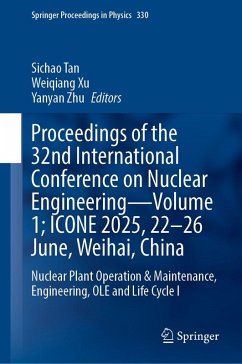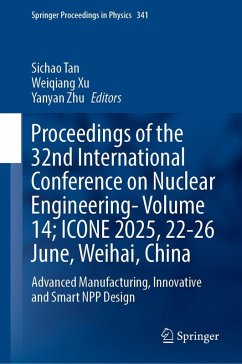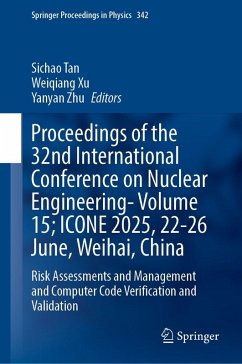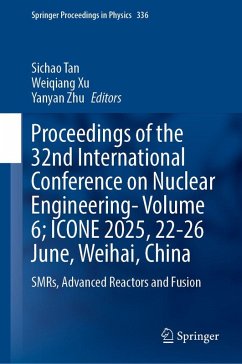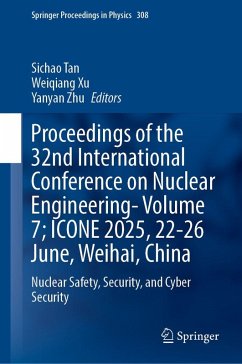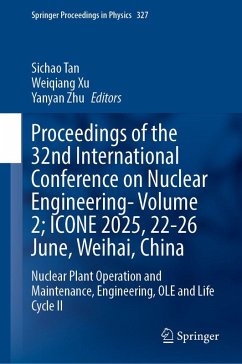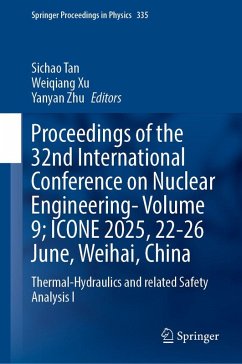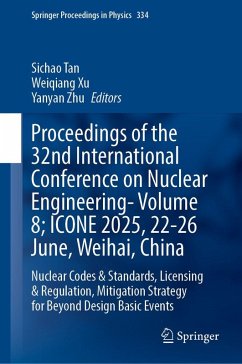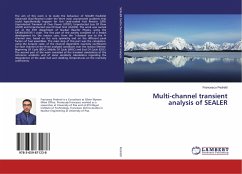
Multi-channel transient analysis of SEALER
Versandkostenfrei!
Versandfertig in 6-10 Tagen
41,99 €
inkl. MwSt.

PAYBACK Punkte
21 °P sammeln!
The aim of this work is to study the behaviour of SEALER (SwEdish Advanced LEad Reactor) under the three main unprotected accidents that could hypothetically happen for this Lead-cooled Fast Reactor (LFR): Unprotected Transient of Over Power (UTOP), Unprotected Loss Of Flow (ULOF) and Unprotected Loss Of Heat Sink (ULOHS). The work was carried out at the KTH department of Nuclear Reactor Physics, using the SAS4A/SASSYS-1 code. The first part of the activity consisted of a model development for the reactor core, from the 1-channel one to the 4-channel one, based on the core symmetry and on the ...
The aim of this work is to study the behaviour of SEALER (SwEdish Advanced LEad Reactor) under the three main unprotected accidents that could hypothetically happen for this Lead-cooled Fast Reactor (LFR): Unprotected Transient of Over Power (UTOP), Unprotected Loss Of Flow (ULOF) and Unprotected Loss Of Heat Sink (ULOHS). The work was carried out at the KTH department of Nuclear Reactor Physics, using the SAS4A/SASSYS-1 code. The first part of the activity consisted of a model development for the reactor core, from the 1-channel one to the 4-channel one, based on the core symmetry and on the different peak factors of fuel assemblies. The main step of this part was the calculation, using the Serpent code, of the channel dependent reactivity coefficients for each channel at the three analysed conditions over the reactor lifetime: Beginning Of Cycle (BOC), Middle Of Cycle (MOC) and End Of Cycle (EOC). The second part of the work consisted of the transient simulations of the reference accidents and of some sensitivity calculations regarding the dependence of the peak fuel and cladding temperatures on the reactivity coefficients.



